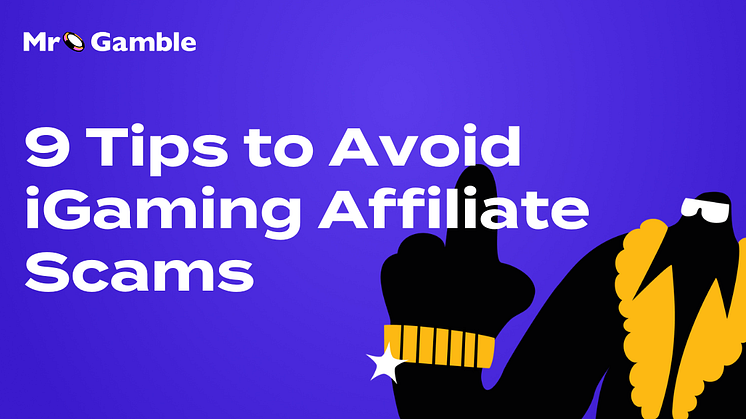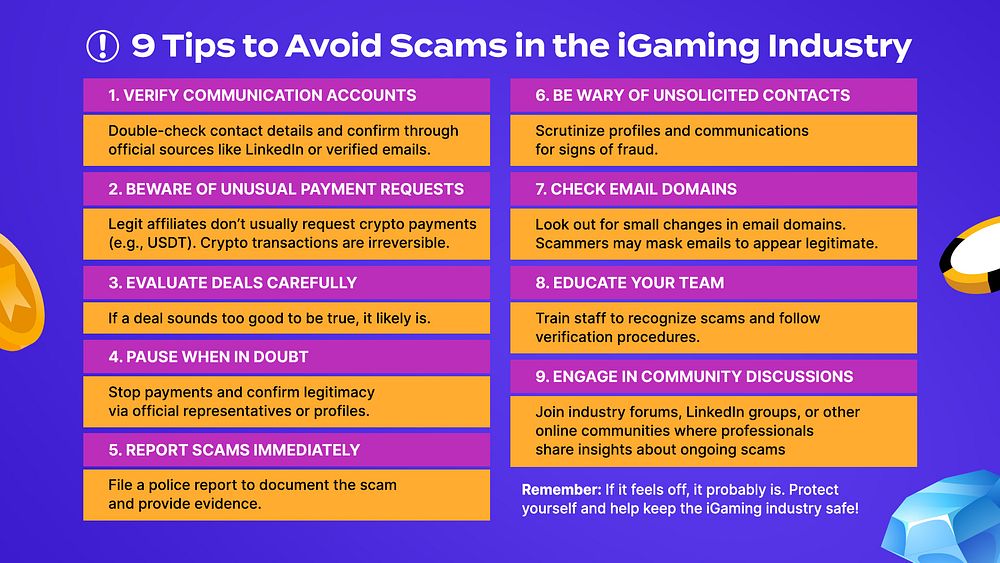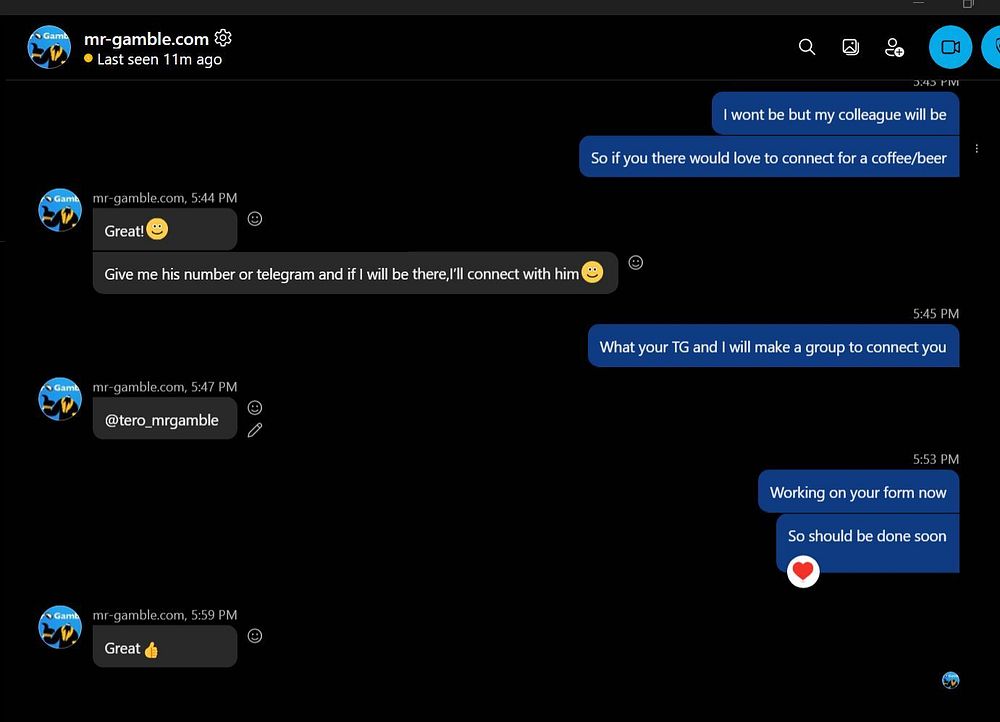
Blog post -
9 Tips on Not Getting Scammed: Protecting Yourself in the iGaming Industry
Scams have become a significant concern in the iGaming industry, especially with scammers impersonating well-known affiliates like Mr. Gamble. These scams often involve requests for listing fees through fake Skype, Telegram accounts, or masked email accounts.
Scammers even go as far as mimicking legitimate processes, sending fake insertion orders (IOs), and distributing Q&A sheets to make their schemes more convincing.
Unfortunately, while vigilant affiliate managers and operators can spot these scams, some still fall victim. While this has been the talk of the town in the industry, no one has ever really addressed it properly.
Hence, we here at Mr. Gamble wanted to help our partners and the industry alike by gathering an article on how not to get scammed. We want to keep the industry safe for everyone.
Here are actionable tips to protect yourself and your business from these fraudulent practices.

1. Verify Skype & Telegram Accounts
Scammers frequently use fake Skype and Telergam profiles that resemble legitimate ones. Take time to verify the Skype account you’re communicating with. Double-check the contact details and cross-reference them with official sources. If possible, request confirmation via other official channels, such as LinkedIn or email from a verified domain.
Below are some example accounts that are used by scammers who pretend to represent Mr. Gamble
Below account DO NOT belong to Mr. Gamble and are used by scammers;
👉 live:.cid.a769749154eeeb67
👉 live:.cid.1c63ee66c15f8f8e
👉 live:.cid.aeb1562517dc40f6
👉 live:.cid.d24dbbecd34258e8
Microsoft Teams:
live:.cid.1c63ee66c15f8f8e
Telegram
@tero_mrgamble
Microsoft Teams:live:.cid.1c63ee66c15f8f8e
Example of the conversation with the scammer;


2. Be Cautious of Unusual Payment Requests
Legitimate affiliates like Mr. Gamble usually do not request payments via cryptocurrency platforms such as USDT. Transactions made through crypto are often irreversible, making them a preferred method for scammers. Always confirm payment methods through official communication channels.
While crypto transactions are difficult to reverse, you can track their movement through tools like Bitquery Explorer. Additionally, if the scam involved Binance, you can file a report directly with them to flag suspicious accounts. This may not guarantee a recovery of funds but could assist in identifying fraudulent activity.
One of the wallets used for scams;
USDT TRC-20: TSNU16snoqzV1Kzvg1EgGzDdVpQ3gHaTDJ
Mr. Gamble does not ask any payments via USDT.
3. Evaluate Deals Carefully
If a deal sounds too good to be true, it probably is. Scammers often entice victims with unusually lucrative offers, such as promising a pure 30% revenue share deal. Trusted affiliates will rarely work under such unrealistic terms. Use your judgment and industry knowledge to assess the credibility of any proposal.
4. Pause When in Doubt
When unsure about the legitimacy of a request, do not proceed with any payments. Instead, reach out to the affiliate’s official representatives through verified LinkedIn accounts or personal profiles. Taking the time to confirm the details can save you from significant financial loss.
5. Report Scams Immediately
If you have been scammed, file a police report as soon as possible. This is the first step in getting the matter officially documented and moving forward. Additionally, provide any evidence you have, such as email communications or payment receipts, to assist the authorities in their investigation.
6. Be Wary of Unsolicited Contacts
Scammers often reach out unsolicited, pretending to be reputable affiliates. If someone contacts you out of the blue, claiming to represent a trusted brand, scrutinize their profile and the communication itself. Look for inconsistencies or signs of a fake account.
7. Check Email Domains Carefully
Fake emails often come from domains that closely mimic legitimate ones but include subtle changes. For example, an email from a scammer may use “@mrgaamble.com”. Additionally, emails can be masked to appear as though they come from legitimate accounts. Always check email addresses closely and verify the sender through alternate methods before replying or acting on their requests.
8. Educate Your Team
Ensure your affiliate managers and employees are aware of common scam tactics and red flags. Provide training on how to verify contacts and what to do if they suspect fraudulent activity. An informed team is less likely to fall victim to scams.
9. Engage in Community Discussions
Join industry forums, LinkedIn groups, or other online communities where professionals share insights about ongoing scams. Staying informed about the latest fraudulent schemes can help you recognize warning signs early.
Conclusion
Scams are an unfortunate reality in the iGaming industry, but with vigilance and proactive measures, you can protect yourself and your business. Always verify communication, question suspicious deals, and don’t hesitate to reach out to official representatives for confirmation. If you do fall victim to a scam, report it immediately and leverage available tools to track any lost funds. By staying alert and informed, you can significantly reduce your risk of being scammed.





